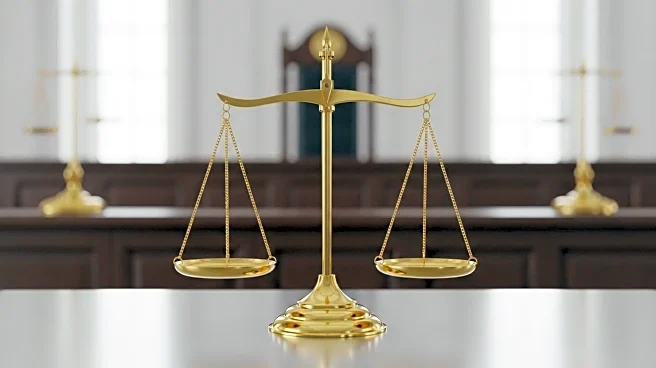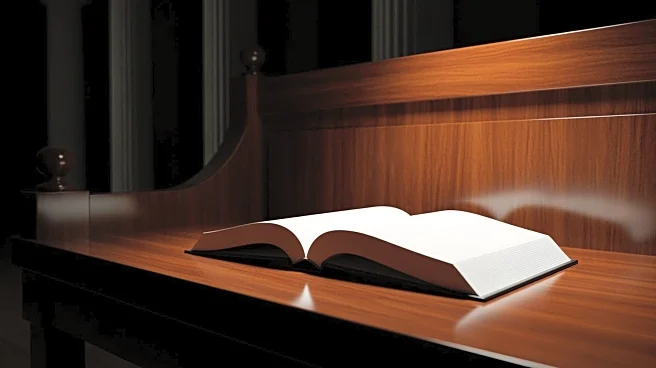What's Happening?
President Trump has proposed a $100,000 fee for new H-1B visas, which is facing legal opposition. A lawsuit filed by unions, employers, and religious groups challenges the president's authority to impose such a fee, arguing it exceeds his constitutional powers. The H-1B visa program, which annually offers 65,000 visas, is crucial for sectors requiring skilled workers. The proposed fee represents a significant increase from the previous $2,000 to $5,000 range, raising concerns about potential talent loss and reduced competitiveness in the U.S. economy. The lawsuit, filed in the U.S. District Court in San Francisco, contends that the president cannot unilaterally impose fees or taxes, a power reserved for Congress.
Why It's Important?
The proposed fee could have significant implications for U.S. industries reliant on skilled foreign workers, such as IT, engineering, and healthcare. Critics argue that the fee may lead to outsourcing and weaken America's technological edge, as smaller firms and universities might struggle to afford the increased costs. This could exacerbate existing skilled labor shortages and impact the U.S. economy's competitiveness. The legal challenge highlights concerns about access, fairness, and the sustainability of the H-1B program, particularly for smaller employers. The outcome of this legal battle could set a precedent for presidential authority over immigration policy.
What's Next?
The lawsuit marks the beginning of a potentially lengthy legal battle for the Trump administration to uphold the proclamation. If the courts rule against the fee, it could force the administration to reconsider its approach to immigration policy. Stakeholders, including businesses and educational institutions, are likely to closely monitor the case, as its outcome could affect their ability to recruit skilled foreign workers. The administration may face pressure to justify the fee's impact on American wages and national security, as well as its alignment with broader immigration goals.









